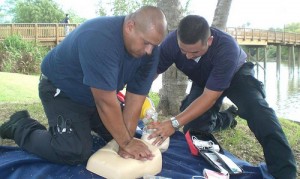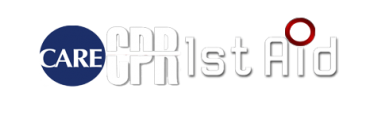
Geriatric care is an essential job. Caregivers are given the responsibility of ensuring that our seniors are well taken care of during their twilight years. They also have the responsibility to make sure that their patients are as comfortable as they can possibly be. Other than this, senior caregivers also need to know how to respond to emergency cases.This is because seniors usually have fragile medical conditions.Their numerous health issues can easily make a grave turn, without so much a warning sign.
That is why Cardiopulmonary Resuscitation (CPR) training should be a requirement for any geriatric care professional. It is one of the most basic emergency skills out there. Having this type of skill and knowledge under your belt will surely increase your competence as a caregiver.
[note color=”#68b96b”]Importance of CPR for Geriatric Care[/note]
Allgeriatric caregivers should possess the most basic emergency response training. CPR is perhaps the most useful life saving procedure known today. It has saved a countless number of lives since it was first invented.
CPR is applied when the senior stops breathing or if their heart suddenly stops beating.The procedure facilitates the flow of oxygenated blood into the victim’s body. The main goal of this emergency procedure is to revive the victim or to buy some time for the emergency workers to get to the scene. Victims can die or suffer horrible brain injuries within 8 minutes. Every second is critical in terms of increasing the victim’s chances for survival. Try to find for the nearest CPR training locations around you.
[note color=”#68b96b”]Emergency CPR Situations[/note]
The need for CPR can arise at any given time. As a geriatric caregiver, one should always be ready for such situations. Being prepared for any type of emergency situation comes with the job description. All of it is part of the job. The following are common medical emergencies that you may face while on the job:
- High Blood Pressure
- Heart Attack
- Cardiac Arrest
- Loss of Pulse
- Asthma Attack
Here is a YouTube Video of the Talk of the Table: Nurse Refuses to Administer CPR which is highly related to the article.
[media url=”http://www.youtube.com/watch?v=Py9tAeSpe3I” width=”600″ height=”400″]Other than aforementioned health-related emergencies, there are also accidents that can put your senior at risk. The most common of these accidents would be falling. Seniors may suffer severe head trauma as a result of this. There are also cases wherein seniors start to choke or may suffer from suffocation as a result of inhaling smoke. There have also been cases wherein seniors were electrocuted, effectively stopping their heartbeat.
[note color=”#68b96b”]Getting the Proper CPR Certification[/note]
Dangerous situations involving seniors can happen at any given time. This is the reason why caregivers need to attend the first aid classes so that they will know what to do in these types of situations.
Getting the proper CPR certification is simple enough. All a professional geriatric caregiver needs to do is to enroll on a CPR course taught by experienced medical professionals. Then he will need to attend all the sessions to complete the class. These classes teach students how to properly perform the emergency procedure. Doing so will ensure that he is equipped with the basic emergency skills he will ever need on the field.
